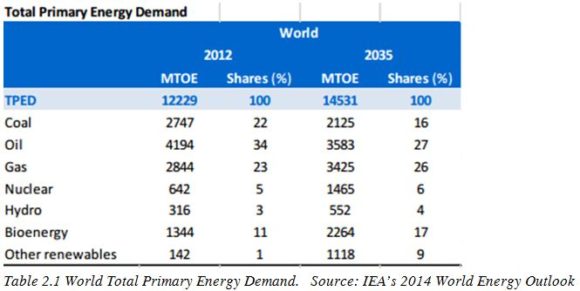-
Simplifying the concepts of Carbon budget and un-burnable carbon.
Climate change has been a topical issue since the 1992 United Nations Conference on Environment and Development (UNCED), also known as the Earth Summit. Indeed climate change is happening, as can be witnessed as increased in global warming, decreasing ice caps, flooding of low lands and other ripple effects on humans and the natural environment. Amongst other deliberations in the Summit was for alternative sources of energy to replace fossil fuels, which delegates linked to climate change.  Following this was an agreement on the Climate Change Convention, which has garnered global support of its conclusions – there global warming does exist, and that it is causes by human activities emitting CO2 – formulating the Kyoto Protocol in 1998 and the Copenhagen Accord in 2009. However, real commitments were only made in 2015 Paris Agreement, signed by 196 countries and by November 2016, have been ratified by 115 countries. In doing so they have committed in Article 2 to significantly reduce the impact of climate change by
Following this was an agreement on the Climate Change Convention, which has garnered global support of its conclusions – there global warming does exist, and that it is causes by human activities emitting CO2 – formulating the Kyoto Protocol in 1998 and the Copenhagen Accord in 2009. However, real commitments were only made in 2015 Paris Agreement, signed by 196 countries and by November 2016, have been ratified by 115 countries. In doing so they have committed in Article 2 to significantly reduce the impact of climate change by
“holding the increase in the global average temperature to well below 2oC above pre-industrial levels and to pursue efforts to limit temperature increase to 1.5oC above pre-industrial levels,” (UNFCCC 2015).
Scientists believe that the 1.5 °C goal is will require zero emissions sometime between 2030 and 2050. (Sutter et al 2015) In the light of this commitment, it is obvious that present carbon emissions have to be curtailed. Thus, a schedule “budget “of how much carbon can be emitted each year going forward has to be set, warranting “carbon budgeting”. CO2 is a major product of the combustion of hydrocarbons found in fossil fuels such as Oil and Gas, Coal, Biomass, etc., and the corollary is that, not all existing fossil fuel reserves will be exploited if this objective is to be met. Thus, as much proven reserves of hydrocarbons that would be affected by this decision could be classified as “un-burnable” – the concept behind un-burnable carbon. One way to ultimately discourage their exploitation is to impact on the economics by levying a tax on the carbon content of fossil fuels at any point in the product cycle or use. This leads to the concept of “Carbon Tax”.
The Carbon Budget can thus be defined as the maximum amount of carbon that can be released into the atmosphere while keeping a reasonable chance of staying below a given temperature rise. The budgets is expressed in gigatonnes of carbon (GtC) or carbon dioxide (GtCO2), where conversion is by multiplying the former 3.67 to obtain the latter.(Carbon Tracker 2011)
The Intergovernmental Panel on Climate Change (IPCC) first adopted the concept of carbon budgets in its 2013 report, and its estimates are represented in Figure 1.1 below
Figure 1.1 reveals that 65% of the carbon budget compatible with a 2°C goal is already used, and that the window for action is rapidly closing.
Several countries have set up targets that represent their appropriate contribution to global emission reductions, such as contaminated the UK Climate Change Act which establishes a system of five-yearly carbon budgets as target for the UK to reduce its emissions by at least 80% from 1990 levels by 2050. These provide a level of predictability for UK firms and households to plan and invest for a low-carbon economy which will impact on the UK oil and Gas industry.
The concept of un-burnable carbon is predicated on the assertion that the cumulative CO2 emissions required to limit global temperature rise to the a given level, and in this case the benchmark of the Paris Agreement of 2°C above pre-industrial levels, is much less than the CO2 that would be emitted from producing all the existing proven reserves of fossil fuels. With considerable uncertainties, and assumptions such as that governments are united in enforcing policies to achieve the + 2°C target, and that Oil and Gas companies do not factor in the risks and expenditures which include carbon taxes, associated with climate change concerns, in their capital structure, or modify their investment strategy, then several planned and on-going development projects may have to be abruptly suspended, denoted as stranded assets. Summarily, for the carbon budget to be met, much proven reserves would remain un-burnt.
-
Possible impact of carbon tax application on the global oil and gas industry.
It is in the interest of all mankind including participants in the oil and gas industry, that issues of climate change are taken seriously, and outcomes of the Paris Agreement be enforced by governments across the globe.
The world over, taxes have not only been a useful tool to for government to generate fund to meet its obligations to citizenry and the environment, but have also been effective as price instrument to discourage consumption.
However, with increasing population comes an increase in the demand for energy, and countries naturally turn to oil and gas as part of their energy mix due to its plentiful and reliable nature. The International Energy Agency (IEA) projections for primary energy demand shows a significant increase expected in the next 20 year as captured in Table 2.1 below.
From table 2.1 above, the contribution of Oil and Gas to the world energy demand will from 57 per cent in 2012 to 53 per cent in 2035, if other sources of energy grow outside Coal. Carbon Tracker (2015) reports that in a Low- demand scenario, improvements are expected in the demand-side efficiency, broader deployment of renewable technologies in power generation, and modestly faster uptake of biofuels and electric vehicles within transport.
Already, the cost of renewable energy is dropping across several countries, as at 2014, new wind power was cheaper than new coal and gas power in Australia, China and the United States (Sussams, et al 2015). Electricity from roof-top photovoltaic systems is also cheaper than grid supply in many countries and places across the world. (Chen 2014)
Report indicate that marginal carbon tax increase will reduce the producer price (the resource rent) by between one-third and half of the increase while the customer bears the rest (Knut 1994), as such tax burden is usually shared by both producers and consumers. For the investment community, it may be time for portfolio change, while the industry has to adopt a policy for the integration of mitigation technologies such as carbon capture.
Thus, although, with the assumptions of governments enforcement of carbon tax, and oil and gas companies not modifying their investment strategy, there is sufficient reason to anticipate stranded assets in the oil and gas industry. This is unlikely to be in the near future because each country has its peculiar challenge with energy sources to meet growing demand, and for sovereignty. The pursuit of energy security is supreme. Thus the application of carbon tax cannot be with less tact.
January 2017
Samuel Kwelle writes from RGU Aberdeen, UK
References And Bibliography
Austin S., (2016) Saudis lose US clout over oil price war. Available: www.oil-price.net/en/articles/saudis-lost-US-clout-over-oil-price-war.php Assessed: 30th November 2016]
Carbon Tracker (2013) Things to look out for when using carbon budgets! Carbon Tracker’s carbon budget Q&A.
Carbon Tracker (2015) The Carbon Tracker Low – Low demand Scenario, Energy Transition Advisors .
Chen A., (2014). New studies finds the price of Wind Energy in the US at an all Time Low; e Berkeley National Laboratory.
Inkpen, A. and Moffet, M (2011) The Global Oil and Gas Industry, PennWell 2011 pp 95-100.
IPCC (2014) Fifth Assessment Report, Synthesis Report, Lima Climate Action High Level Session, Lima, Perú.
Knut E. R., (1994) Carbon Taxes and the Petroleum Wealth, Statistics Norway Research Department, Discussion Papers
Sussams L, Leaton J., Drew T. (2015). Lost in transition: How the energy sector in missing the potential demand destruction. (Report) Carbon Tracker.
Sutter, John D.; Berlinger, Joshua (2015). “Final draft of Cimate deal formally accepted in Paris”. CNN. Cable News Network, Turner Broadcasting System, Inc. www.cnn.com/…/climate-change-agreement-approved-paris-nr-s [Assessed 28 November 2016]
UNFCCC (2015) Adoption of the Paris Agreement. Draft Decision –CP 21, Rev.1 December, 2015

Cat Cazino Скачать на Андроид. https://www.pgyer.com/apk/apk/com.cat.c115546